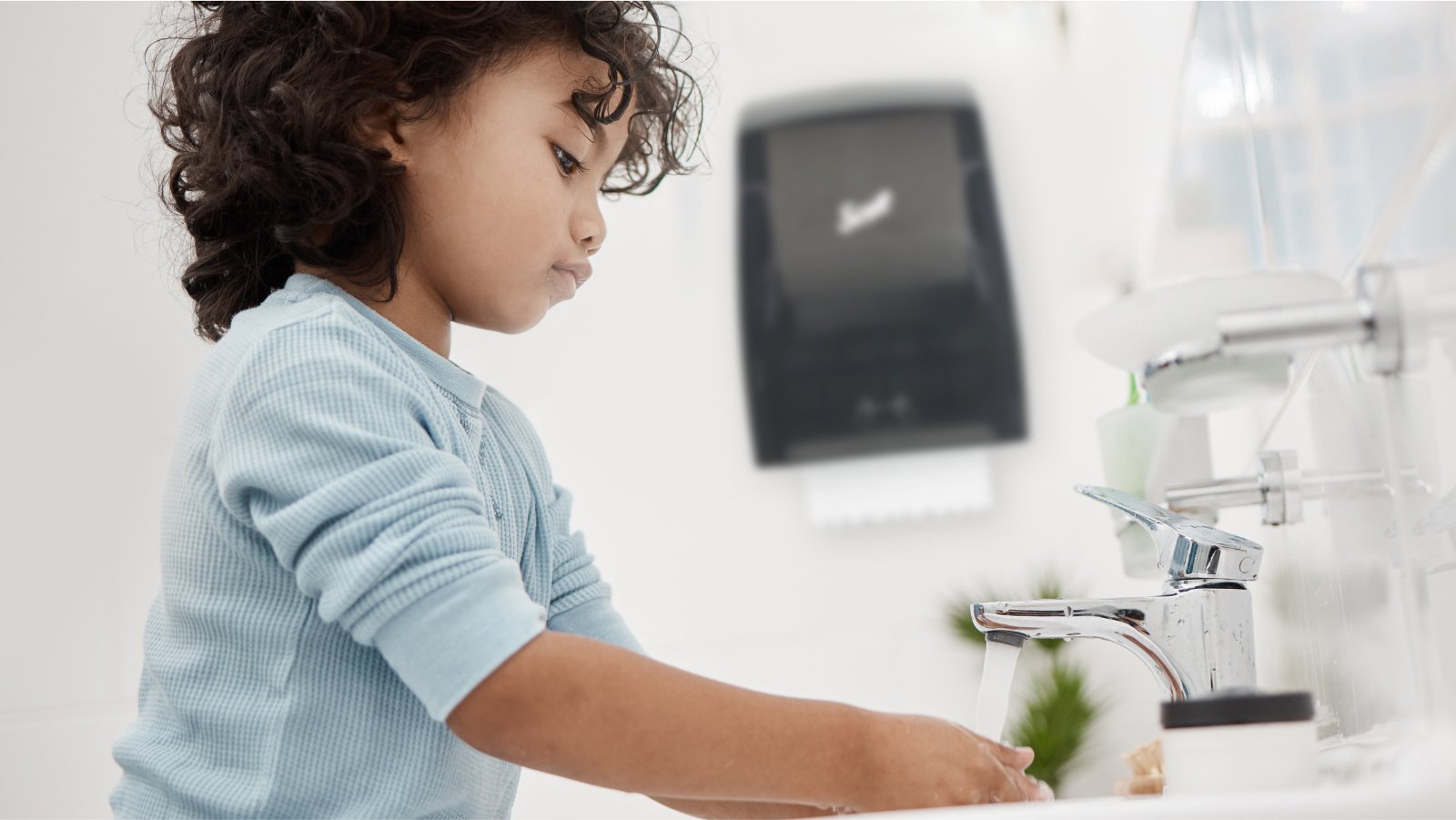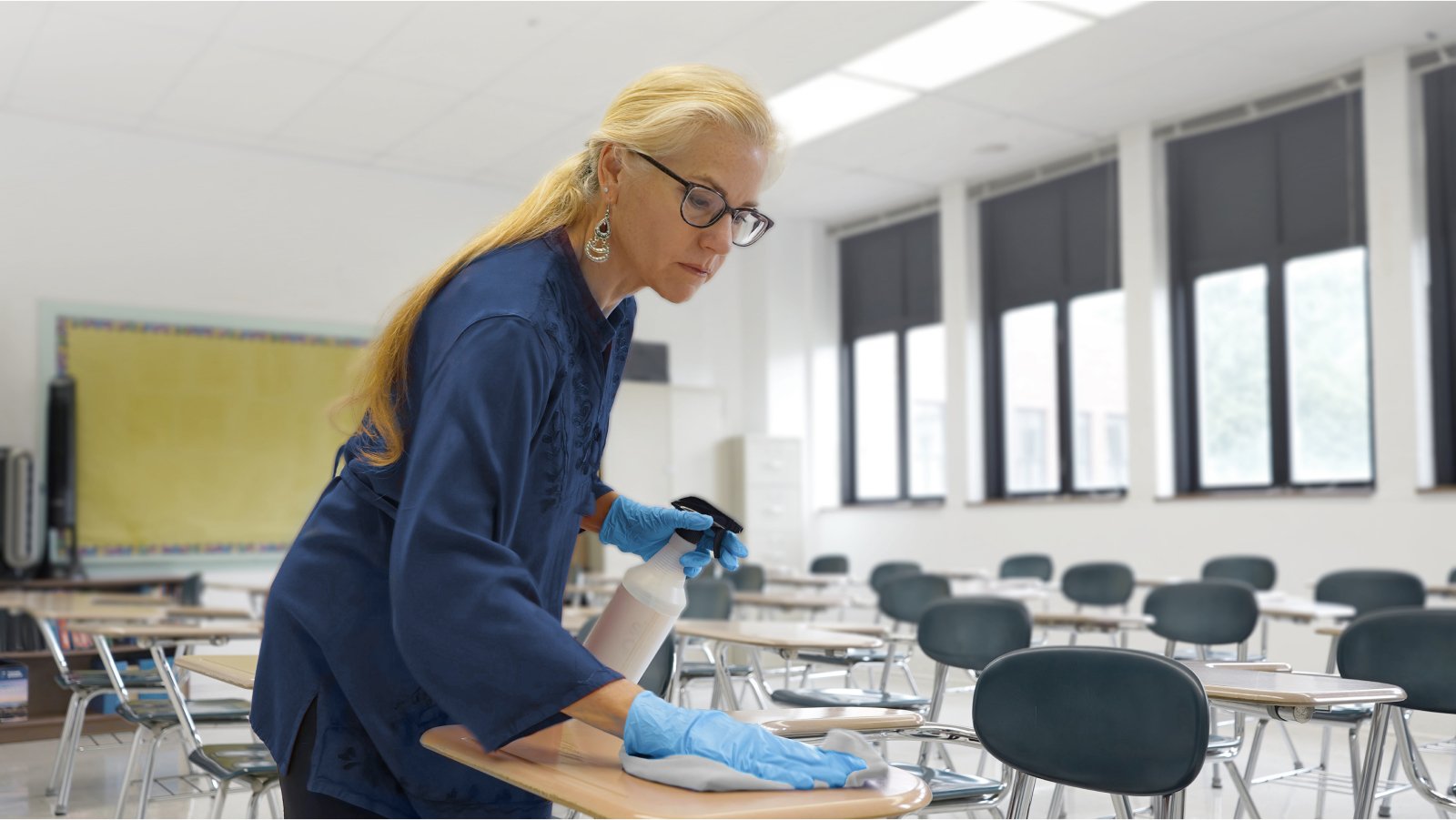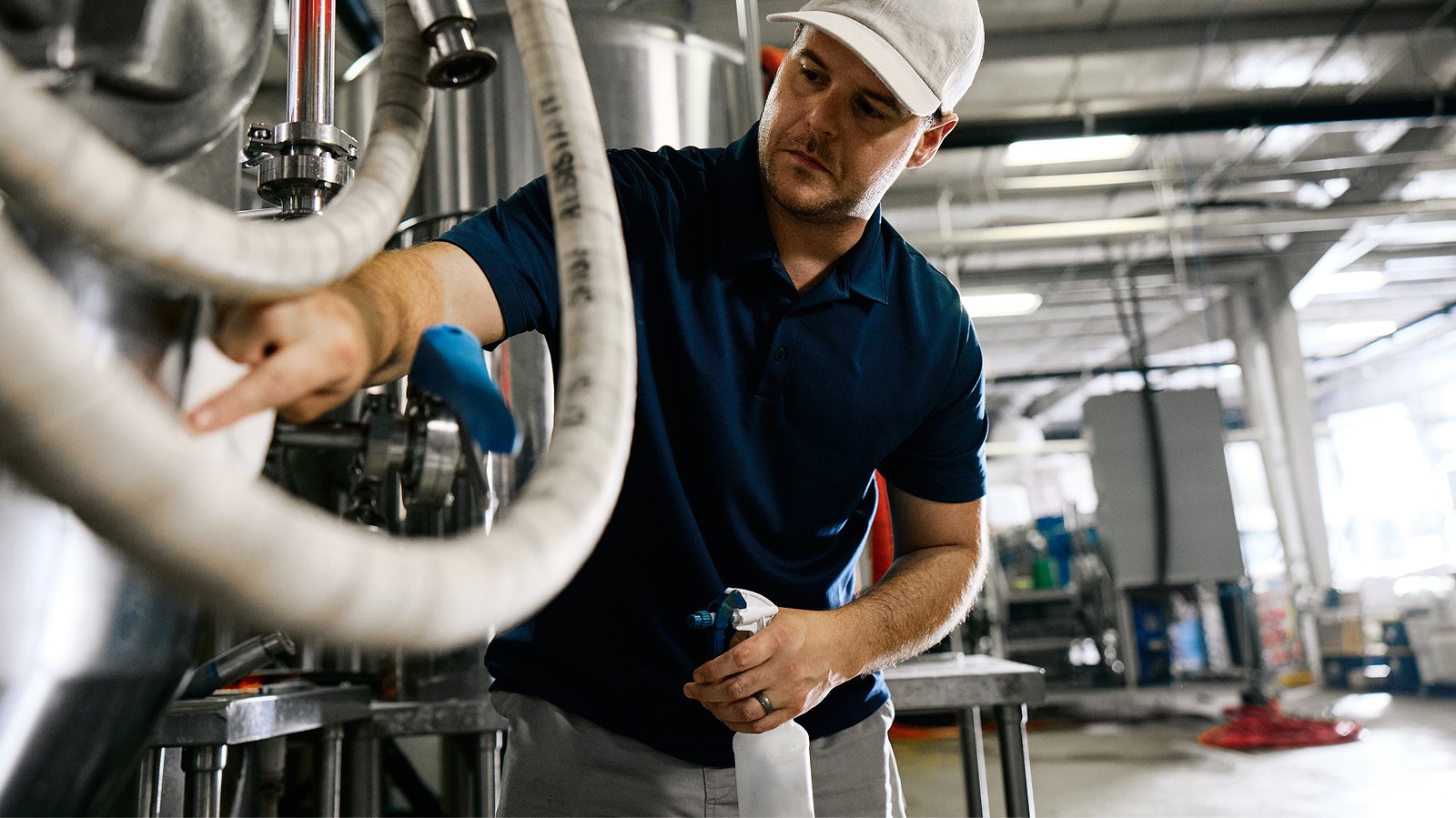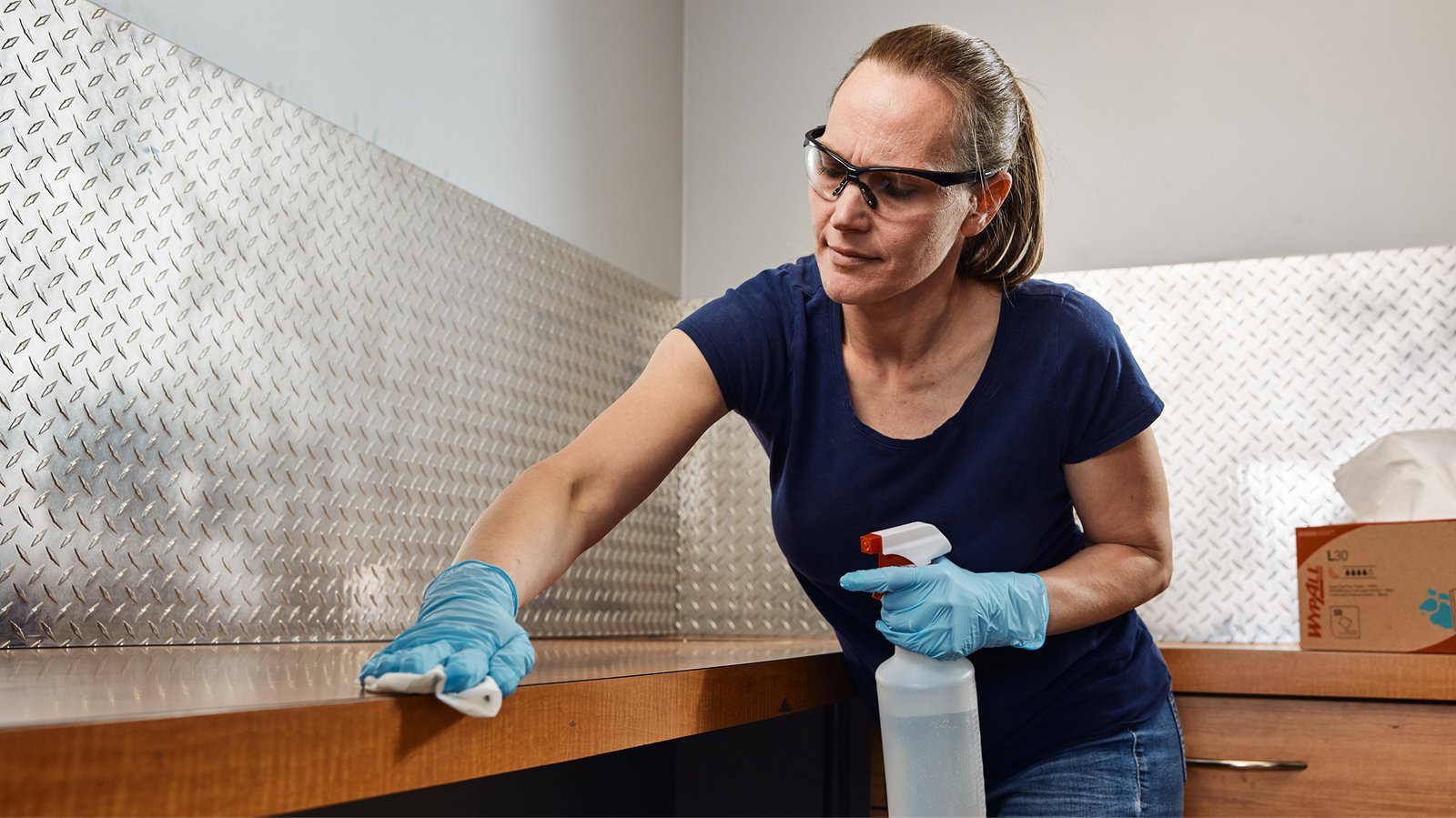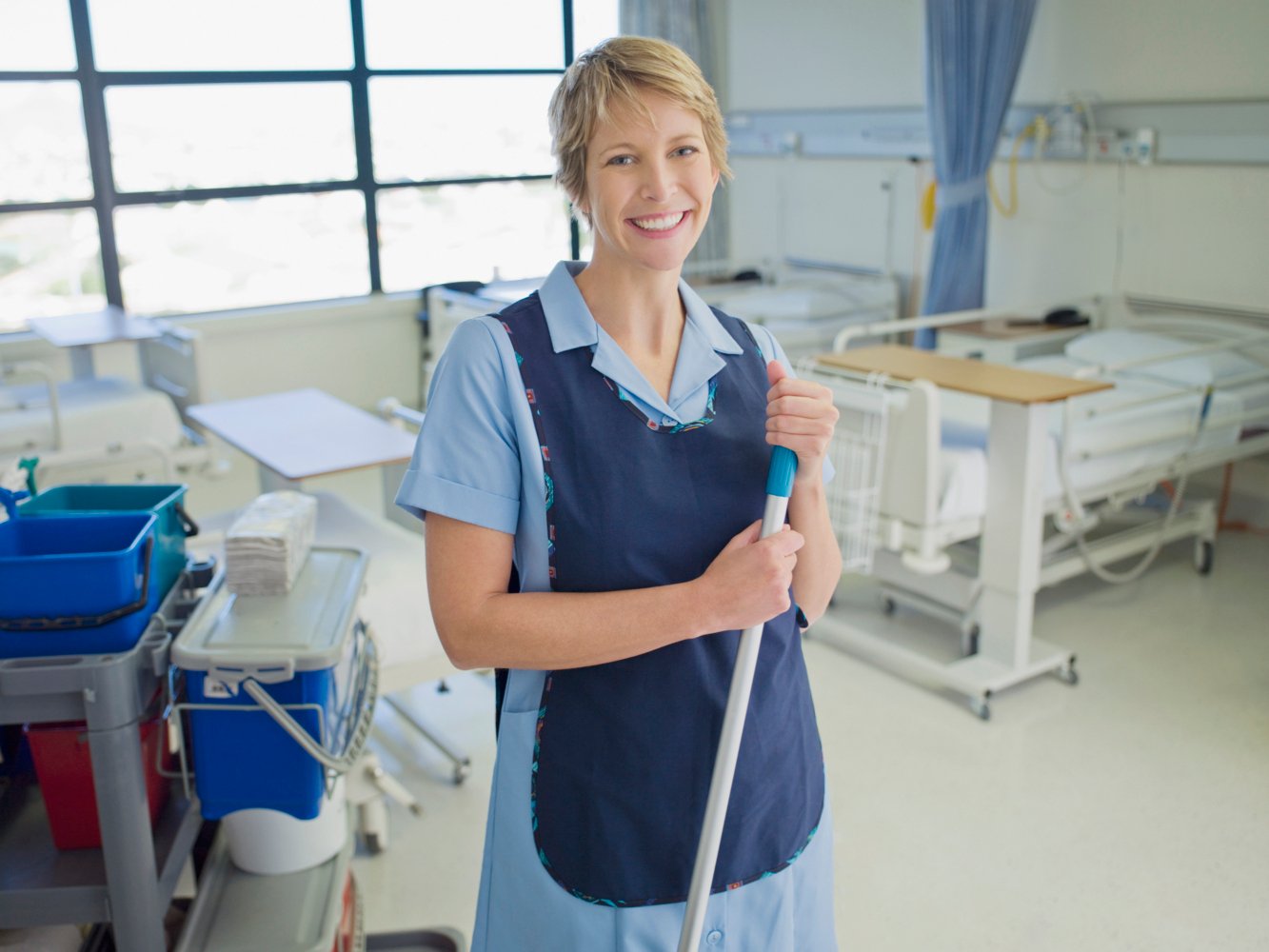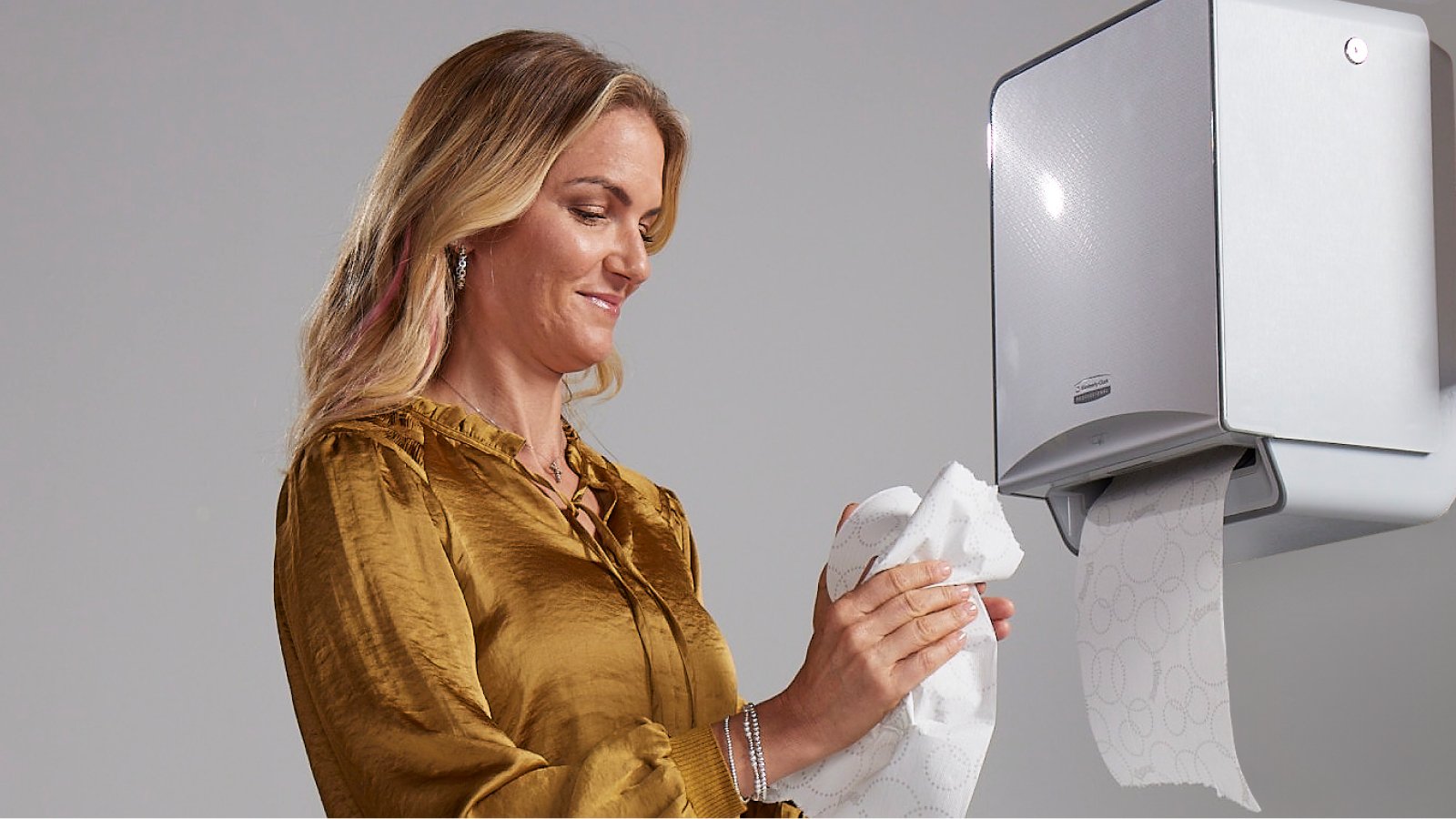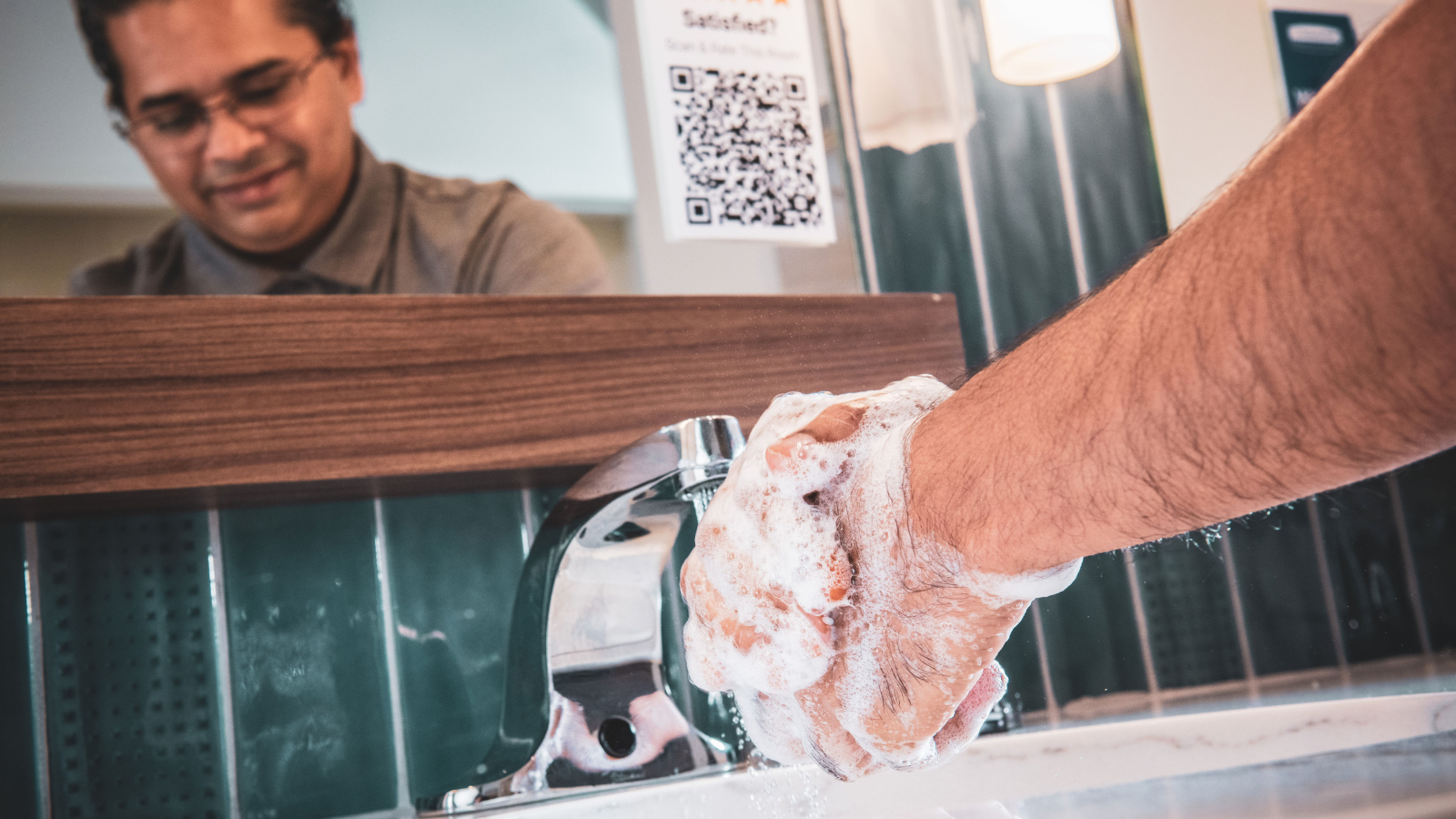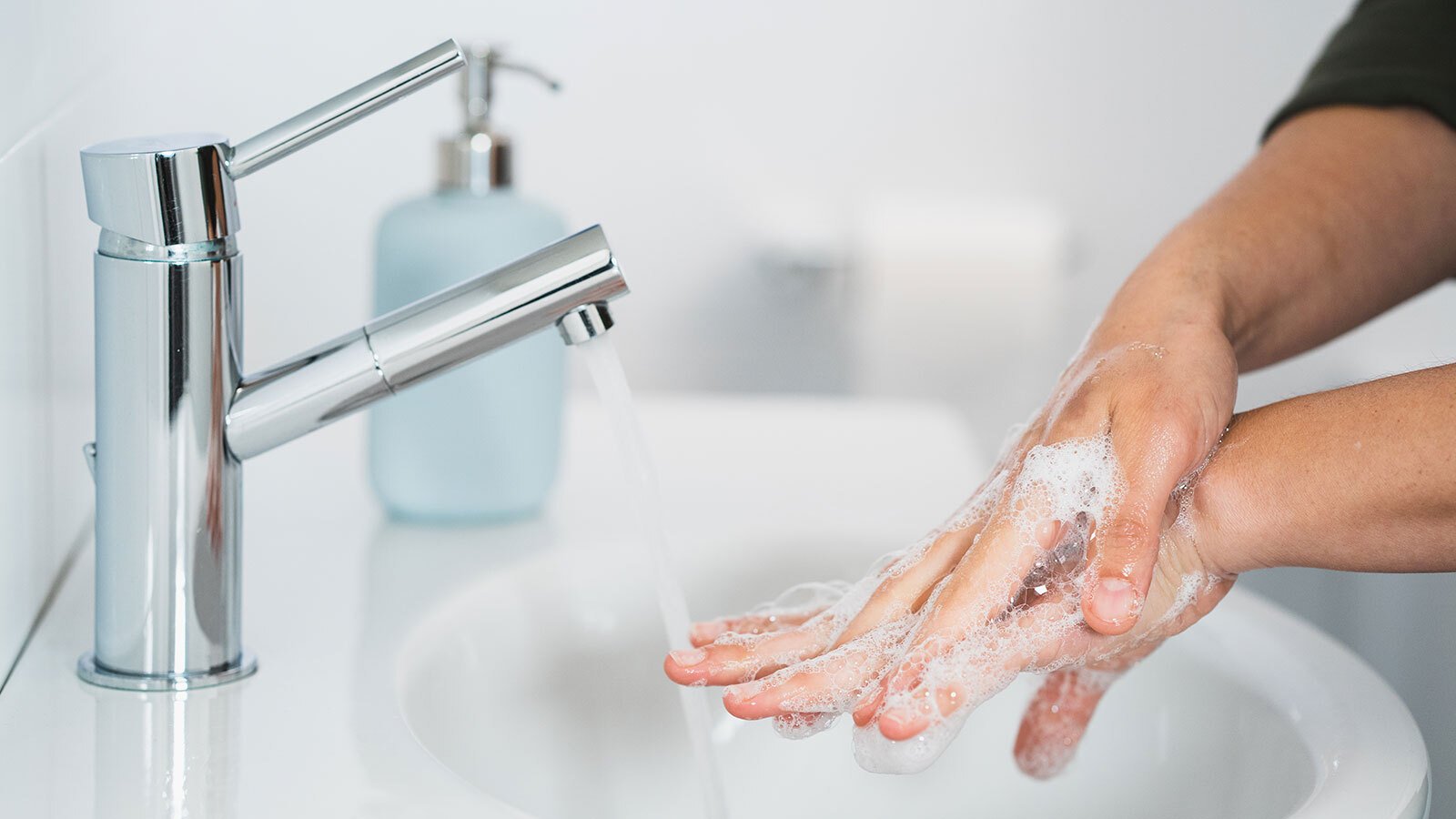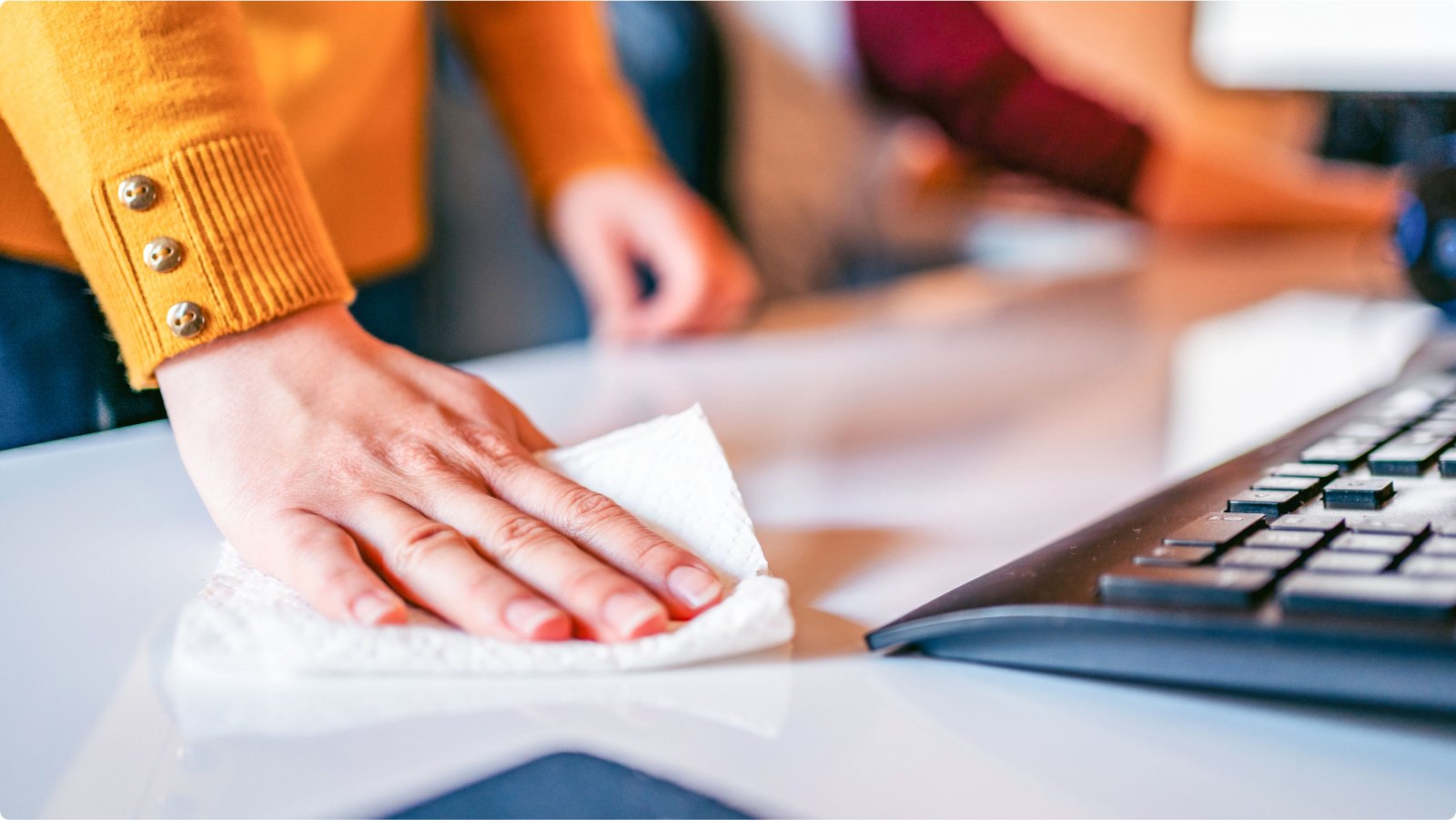Last Updated OCTOBER 2024
Norovirus FAQ
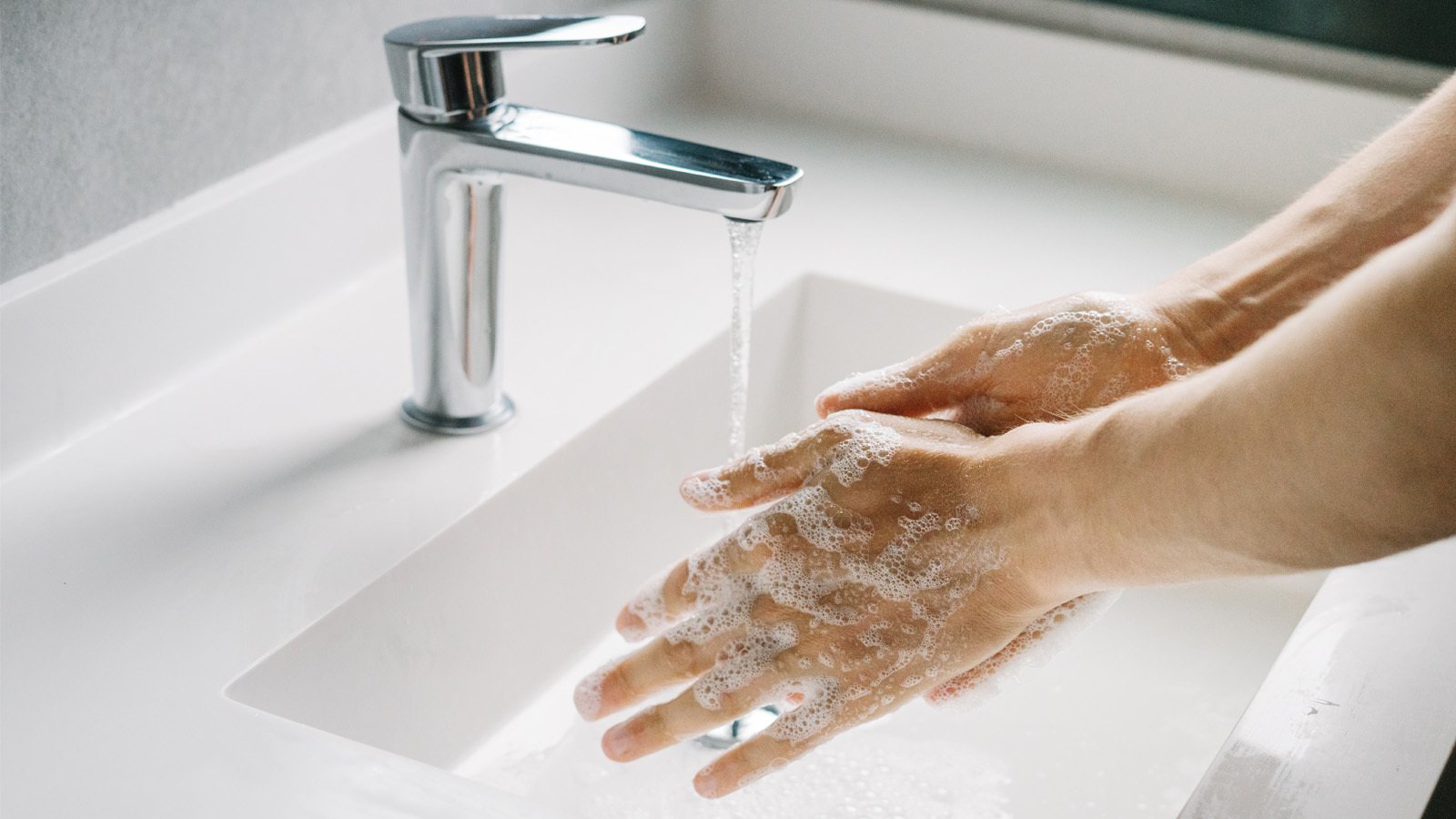
What should I do during a norovirus outbreak?
What exactly is norovirus?
Norovirus is a highly contagious virus that can be the cause of gastrointestinal illnesses like vomiting and diarrhea. It can sometimes be referred to as the “stomach flu” but that can be a misleading term because the flu is caused by the influenza virus.1 Norovirus outbreaks are responsible for 19-21 million illnesses per year, including 900 deaths and nearly half a million emergency room visits. Norovirus is also the leading cause of foodborne illness in the United States.2
Norovirus also greatly affects residents in long term care environments. According to the CDC, 400,000 cases of illness and 78% of deaths from illness outbreaks (2010-2019) were caused by norovirus.3
How does norovirus spread?
Norovirus is spread by coming into contact with particles from the feces or vomit of an infected individual. This can happen through caring for someone who is ill, eating or drinking food that has been contaminated by norovirus, or touching contaminated surfaces or objects and then exposing yourself through touching your mouth. Symptomatic people are contagious, but even those who are starting to feel better are also contagious for several days. Research has shown that someone can still spread norovirus for two weeks after feeling better.4
How do I help prevent the spread of norovirus?
There are some primary ways to prevent the spread of norovirus, including limiting exposure to infected people, practicing good hand hygiene and stepping up surface disinfection efforts.5
Limiting Exposure:
First and foremost, someone who is sick should ideally stay home. They should also not prepare food or provide healthcare for others if they are sick, especially when working in places such as daycares, schools, long-term care facilities and restaurants. Remember that norovirus particles can continue to spread even after symptoms have resolved, so extra precautions may be needed.5
Practicing Good Hand Hygiene:
Hand washing is a key step in preventing the spread of norovirus. Hands should be washed well and often with soap and water for at least 20 seconds of scrubbing, particularly after using the toilet (or changing diapers), before eating or handling food, and especially after taking care of someone who is ill. Hand sanitizer is not approved by the Food and Drug Administration (FDA) to kill norovirus, so removal of norovirus via washing hands with soap and water should be prioritized.5,6
Stepping Up Surface Disinfection:
Norovirus can be a tricky organism to kill. The important thing to know is that products that kill norovirus will specifically list that organism on the product label along with the appropriate directions for use. The United States Environmental Protection Agency (EPA) List G also contains a list of registered antimicrobial products effective against norovirus.7 Make sure to use cleaning materials that are compatible with the type of germicidal active ingredient being used. For example, bleach can be highly effective in killing norovirus, but can be rendered ineffective when saturated and then applied to the surface with a wiping material such as cotton or microfiber.8
Does Kimberly-Clark Professional (KCP) make any hand hygiene products that can help prevent the spread of norovirus?
Yes, Kimberly-Clark Professional makes a wide variety of hand soaps designed to meet the varied needs of offices, schools, factories, restaurants, high traffic locations, hospitality and healthcare facilities. These are effective, efficient products with a strong focus on gentleness to the skin such that hand hygiene is not negatively impacted by discomfort. Our 1L and 1.2L cassettes are hygienically sealed so that hygiene is not compromised during the process of refilling dispensers. Kimberly-Clark Professional also provides high quality restroom products such as single-use paper towels to promote hygienic drying of hands after washing. As wet hands spread more germs than dry hands, it is important to dry them thoroughly.9
Remember that hand sanitizer is not recommended as an effective means of killing norovirus.
Does Kimberly-Clark Professional (KCP) make any surface hygiene products that could help in the disinfection of norovirus?
Yes. Kimberly-Clark Professional has two distinct solutions to best fit our customer’s needs. For those who prefer ready-to-use pre-saturated products, KCP offers WypAll® Disinfectant Wipes, a hydrogen peroxide-based product which kills norovirus in three minutes. And, unlike the vast majority of disinfectant wipes, these wipes meets the EPA's lowest toxicity level for inhalation, ingestion, eye, and skin contact10 . That means the product does not carry any precautionary statements such as "hazardous to humans and domestic animals." In addition, Kimberly-Clark Professional has the #1 closed bucket wiping system in North America, WetTask™11. WypAll WetTask™ CriticalClean™ codes come with a proprietary Kimberly-Clark Professional base sheet specifically designed for broad compatibility with a wide range of disinfectant chemicals. WetTask™ also has an updated product selection tool that makes it easy to pair the right base sheet with the preferred disinfection chemistry. No matter what products are chosen, customers should make sure they are using antimicrobial chemistries with labels that specifically list “norovirus” on the product label.
When it comes to hand and surface hygiene, Kimberly-Clark Professional can meet your needs. Ask your Kimberly-Clark Professional representative to help you choose the right hygiene solution for your business.
2https://www.cdc.gov/norovirus/burden.html
3CDC National Outbreak Reporting System (NORS) Dashboard, https://wwwn.cdc.gov/norsdashboard/
4https://www.cdc.gov/norovirus/about/transmission.html
5Barclay L, Park GW, Vega E, Hall A, Parashar U, Vinjé J, Lopman B. “Infection control for norovirus,” Clin Microbiol Infect. 2014 Aug; 20(8):731-40. https://www.ncbi.nlm.nih.gov/pmc/articles/PMC4624335/
6https://www.cdc.gov/norovirus/about/prevention.html
7https://www.epa.gov/pesticide-registration/epas-registered-antimicrobial-products-effective-against-norovirus-feline
8Environmental Cleaning Supplies and Equipment | Environmental Cleaning in Global Healthcare Settings | HAI | CDC
9Findon DRP, Miller TE, “Residual moisture determines the level of touch-contact-associated bacterial transfer following hand washing,” Epidemiol. Infect., 1997, Volume 119: 319-325
10Category IV formulas meet the lowest EPA-defined toxicity levels for ingestion, inhalation, and eye and skin contact (e.g., WypAll® Disinfecting Wipes).
11 Based on 2021 market share data.










